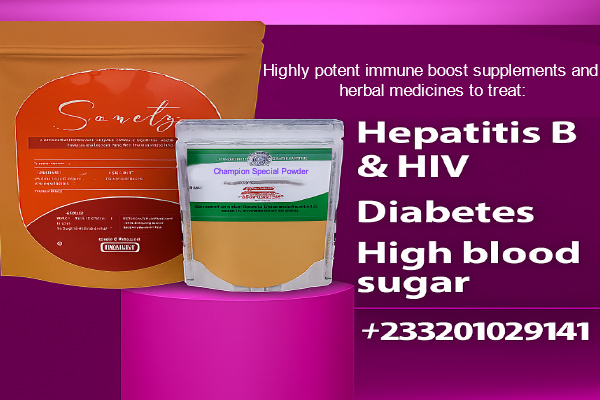Table of contents [Show]
Nerve inflammation, also known as neuritis, refers to the swelling or irritation of a nerve. Nerve inflammation can arise from a variety of causes, each affecting the nerves in different ways.
Common Causes of Nerve Inflammation (Neuritis):
Systemic Diseases: Chronic illnesses like hypothyroidism or rheumatoid arthritis can lead to nerve inflammation indirectly.
Hypothyroidism slows metabolic processes, affecting nerve function and causing swelling. Rheumatoid arthritis involves joint inflammation that may extend to surrounding nerves. Treatment often focuses on managing the underlying disease to reduce nerve damage.
Nutritional Deficiencies : A lack of vitamins, especially B-complex vitamins like B1, B6, and B12, hampers the health of nerve cells. These vitamins are crucial for producing myelin, a protective covering around nerves. Deficiency can lead to symptoms like fatigue, numbness, or tingling.
This is common in malnutrition or strict diets without proper supplementation. Replenishing vitamins through diet or supplements can reverse these effects.
Mechanical Trauma: Physical injuries, such as fractures, cuts, or crush injuries, can directly damage nerves, leading to inflammation. Prolonged pressure on nerves, as seen in conditions like carpal tunnel syndrome, results from repetitive motions or abnormal posture.
The constant compression disrupts nerve signals, causing pain, tingling, or weakness in the affected area. Surgery or physical therapy may be required for severe cases.
Infections: Viral or bacterial infections can target nerves, leading to inflammation. For instance, shingles, caused by the varicella-zoster virus, inflames nerves and produces a painful rash.
In leprosy, a bacterial disease, peripheral nerves are attacked, leading to loss of sensation and muscle weakness. These infections often require antiviral or antibiotic treatments to control the damage.
Chemical Trauma: Toxic substances such as heavy metals (lead, arsenic, mercury) can accumulate in the body, damaging nerve tissues. Long-term alcohol abuse also leads to a condition known as alcoholic neuropathy, where nerves become inflamed due to toxic effects.
Certain chemotherapy drugs used to treat cancer may inadvertently inflame or damage nerves. Prevention and detoxification are key to managing chemical-related nerve inflammation.
Autoimmune Disorders: Autoimmune conditions occur when the immune system mistakenly attacks healthy tissues, including nerves.
For example, in Guillain-Barré syndrome, the immune system targets peripheral nerves, causing weakness and paralysis. In lupus, systemic inflammation affects multiple organs, including the nervous system. Immunosuppressive medications and physical therapy are often used in treatment.
Vascular Issues: Nerves require a steady supply of blood to function. Reduced blood flow due to diabetes or atherosclerosis can lead to nerve inflammation.
Diabetic neuropathy, a complication of diabetes, results in pain, burning sensations, or numbness, especially in the limbs. Managing blood sugar levels and improving circulation are vital in preventing further damage.
Genetic Factors Inherited conditions like Charcot-Marie-Tooth disease affect the structure and function of peripheral nerves. This progressive disorder leads to muscle weakness and sensory loss. Since these conditions are genetic, treatment often focuses on symptom management through physical therapy and assistive devices.
Nerve Inflammation Treatment Supplements and Remedy Pack
We offer a nutrient-rich pack of Forever supplements and remedies formulated to address nerve inflammation. These products are rich in omega-3 fatty acids, which are vital for supporting nerve repair and reducing inflammation.
Additionally, protein-rich nutrients, such as those found in eggs and lean meats, contribute to tissue healing and regeneration.
Our anti-inflammatory supplements effectively alleviate pain, swelling, and further nerve damage, promoting faster recovery.
To combat infections, our natural antiviral and antibacterial supplements play an essential role. Vitamin C strengthens the immune system and enhances the body’s ability to recover, while antimicrobial agents like garlic and ginger help fight viral or bacterial threats effectively.
The nerve inflammation remedy pack is enriched with nutrients derived from citrus fruits, bell peppers, and guava, providing an additional supply of vitamin C to further boost immunity.
For protection from chemical trauma, our antioxidant supplements, such as those containing vitamin E, significantly reduce the toxic effects of free radicals on nerve cells. Natural sources like broccoli, spinach, and nuts enhance antioxidant levels, and proper hydration with clean water supports the detoxification process.
To address deficiencies, supplements containing B vitamins (B1, B6, and B12) are indispensable in restoring nerve health and repairing the protective myelin sheath. Magnesium and zinc further enhance nerve function and reduce inflammation, promoting overall recovery. Additionally, omega-3 supplements and curcumin from turmeric provide powerful anti-inflammatory effects, making them effective for treating autoimmune-related nerve damage.
Supplements that improve blood flow enhance circulation to nerves, ensuring they receive adequate oxygen and nutrients. Antioxidants like vitamin E play a dual role by protecting nerve cells and tissues from further damage. For individuals with systemic conditions, our disease-specific remedies with anti-inflammatory properties, combined with vitamin D supplements, support nerve health in conditions such as rheumatoid arthritis and hypothyroidism.
Finally, supplements containing fatty fish supply collagen, an essential component for maintaining joint and nerve health. Together, these supplements work synergistically to address the root causes of nerve inflammation, promote nerve repair, and enhance overall well-being.

 James Nartey
James Nartey

Leave a comment